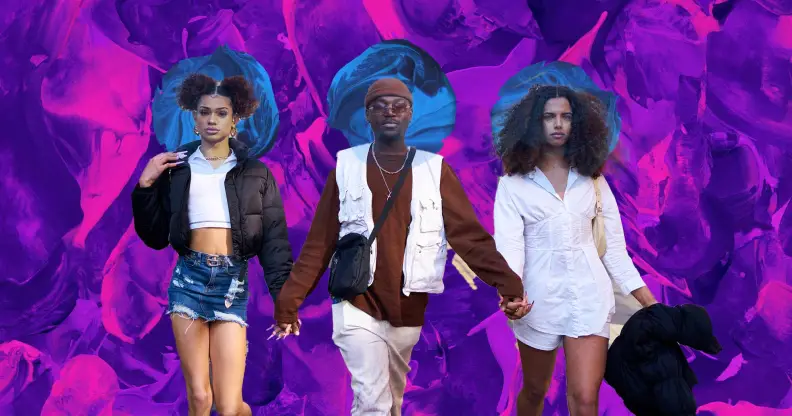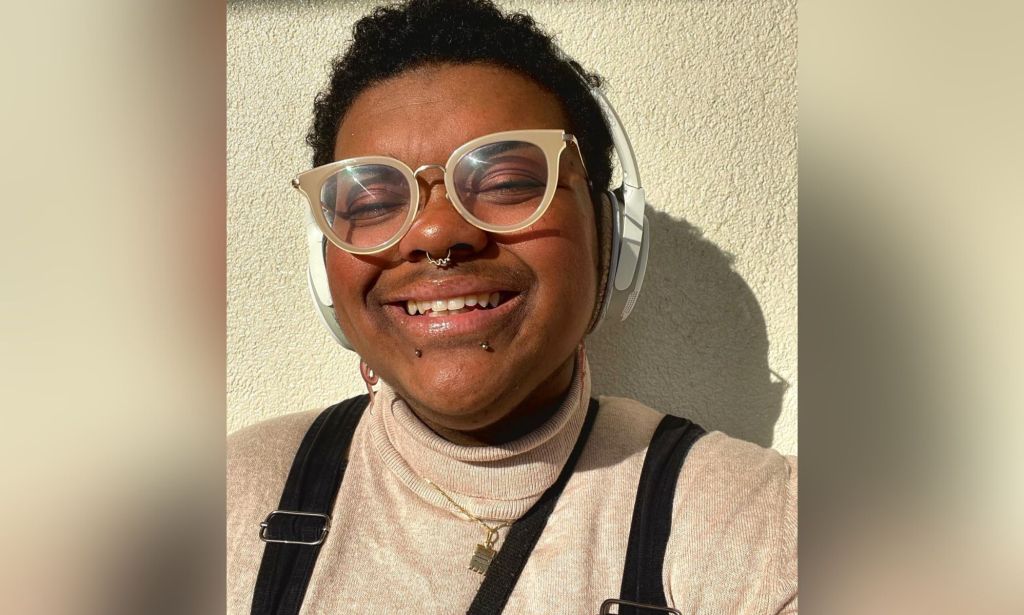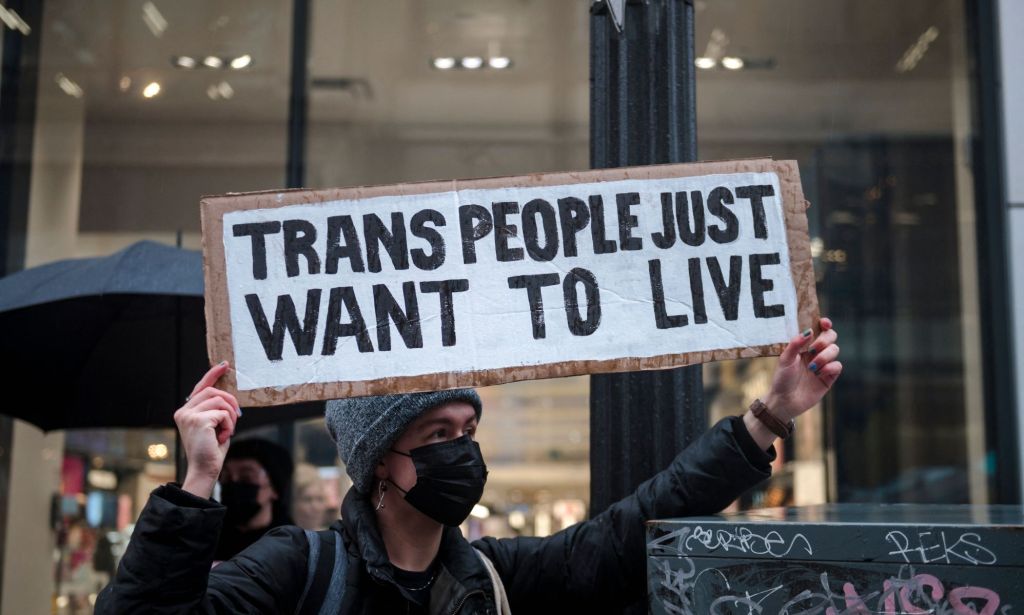Trans Day of Visibility: Being seen is a risk that not all transgender people can take

Trans people don’t owe anybody visibility. (Getty)
On Trans Day of Visibility, Elliot Kwabena Akosa, an ambassador for the LGBTQ+ youth charity Just Like Us, explains why being visible can be a double-edged sword.
What does it mean to be visible, and how does it benefit trans people? I have turned this question inside-out in my head countless times over the years that I’ve observed Trans Day of Visibility. And, as with most complex questions, I have arrived at a rather unsatisfying conclusion.
Being seen means different things to different people, there is no one way to be a visible trans person. But the question of how far visibility can take us in the grand scheme of trans liberation and progress is one to which we should all be giving more thought.
I only discovered the word transgender when I was around 10 years old, and it felt like waking up to a different universe. To discover that gender didn’t have to be a done deal from birth, that people could take steps – socially, legally and medically – to better reflect who they feel they are, was life-changing for me.
Alas, living in Uganda meant that visibility for me as a trans person was nigh impossible. It meant that this novel aspect of my identity had to remain strictly in online spaces.
There was quite little by way of trans representation in the early 2010s, and none that I could find easily as a pre-teen.

The one character I knew of was Hot Carla from the TV series Mr Robot, a brilliant trans woman who got along well with the main character after whom I was named, Elliot (played by Rami Malek). Just seeing her on screen, seeing that she had a place in a fictional story where transness wasn’t factored into the main plot, was a comfort.
To some, representation is a form of visibility. Being able to see oneself in the media we consume makes escapism more accessible. It’s a lot easier to dive into a fictional universe if you can picture yourself as the characters you see on screen.
Seeing more trans characters as I continued to grow and develop was a huge boost to my confidence and self-esteem, but it wasn’t able to change the circumstances I was living in.
Visibility is a double-edged sword. The more exposed we are to the wider world, the more open to criticism, hatred and mockery we become.
Coming out has the power to show other people that being different is not only a possibility, but a strength. It also has the power to expose you to reactions that could be hurtful, or even dangerous.
The effects of daily transphobia in our society are profound and deadly, without even beginning to consider direct discrimination in our personal lives. To disclose one’s transness is to be profoundly vulnerable, and to be visible sometimes means taking an immense risk.

Despite this, there exists a bizarre notion that trans people owe the disclosure of their identity to others. That choosing to keep that private part of themselves just that – private – is somehow deceitful. The uncomfortable truth that many need to hear is this: trans people do not, and never have, owed you visibility.
There is hope that, one day, trans visibility will mean people finally listening to our voices, our children feeling safe to express themselves, and politicians no longer treating us as invaders, pests, or interview material.
But, as long as we’re still waiting for that day, visibility is a risk that not everyone is willing to take. This year, I’m choosing to honour and celebrate those who cannot be front-and-centre in our struggle. Knowing, accepting and loving yourself is a radical act in a society that others us. Let that be your defiance.
Elliot Kwabena Akosa is an ambassador for the LGBTQ+ youth charity Just Like Us.
How did this story make you feel?

